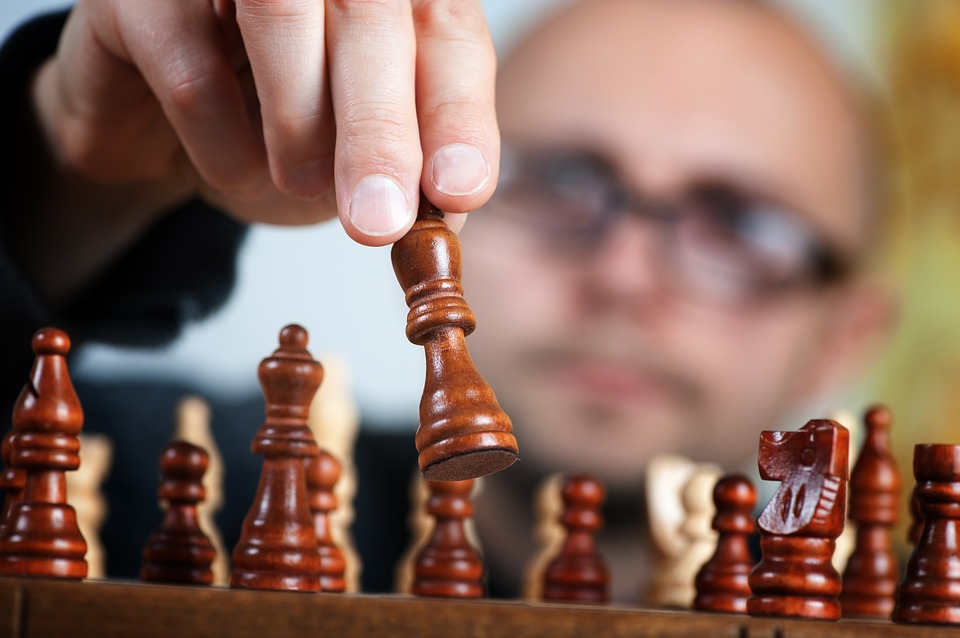Dementia – Some common doubts cleared
What a condition it would be when a mother can’t identify her own children? When the family members identify that this person is suffering from dementia, it will be too late. Now dementia is so common in Indian society. It was not the case two decades back. Nobody even heard about that condition that time.
Recent studies conducted by Longitudinal Aging Study of India say that 8.27% of people above the age of 60 in Kerala are suffering from dementia. According to 2021 report conducted by National Statistical Office (NSO) Kerala has approximately 58 lacs elderly people age above 60. If so more than 4 lakh people from the state of Kerala are suffering from dementia. As per the statistics of World Health Organisation a total of approximate 550 million people are suffering from this deadly disease across the world. So let us have a basic idea about the disease and clear a few doubts also.

What is dementia?
Dementia is not a disease, but a condition which includes so many disease symptoms. Due to some diseases, nerves of certain parts of the brain are affected and they deteriorate in proper functioning. This condition badly affects memory power, thinking capacity and reasoning. Memory slowly fades and the behaviour of the person also changes. Condition turns worse when the person can’t even do his daily activities and has to depend on other people even for doing small tasks. At this stage the person totally losses the balance of life.
Dementia is most commonly seen in senior citizens, i.e. People aged 60 plus. Meanwhile Alzheimer’s disease, which is also a division of dementia is commonly seen in people above 70. Is not necessary that dementia affects a person above 60 only. There is one condition called presenile dementia or early-onset dementia which appears in people below 60.
Dementia is not the reason for all memory related diseases. But at the same time, all the people suffering from dementia have serious memory issues. Dementia falls under different groups based on which portion of the nervous system of the brain is affected and contracted.
Alzheimer’s Dementia

70 percentage of dementia patients belong to this group. It means Alzheimer’s Dementia is highest among all dementia conditions. Its first symptom is the incapability of the brain to register new memories. This condition happens when nerve cells of memory in hippocampus is affected. Hippocampus is a part of the brain that plays a key role in memory, learning, and navigation. It’s located in the inner part of the temporal lobe.
The person clearly remembers and recollects old things and events. But he may not be able to recollect memories of the recent times; for example, last week or last month. This is the first symptom. The person may forget people’s names or forget places where he kept things before.
In the next stage he may be confused or even forget familiar roads or places. Such persons may fall into hallucinations or illusions and even depression. They may give less attention to personal care, personal hygiene, loss interesting food and slowly become bedridden.
Vascular Dementia
This condition happens when a stroke or block happens in those brain cells where memories are stored. This condition is not similar to Alzheimer’s. While Alzheimer’s is a slow process when the patient slowly losses him memory, in vascular dementia memory loss happens suddenly. When stroke repeatedly happens the condition of the person turns worse, resulting in continuous memory loss. It is caused by reduced blood flow to the brain, which damages and eventually kills brain cells.
Frondotemporal dementia (FTD)
This brain disorder affects the frontal and temporal lobes of the brain. It happens due to the deterioration of nerve cells. Before the disease sets in, the person may show ability in planning certain things better. However, once the disease comes into play, the person may turn introvert, contracting to his own isolated world detaching from everyone. She may show signs of depression also. The person shows less mobility, difficult in walking and gradually he slows down in doing activities. He may not able to control urination and defecation.
Mild cognitive impairment (MCI)
It’s a slight memory loss, comparing other memory related conditions. Mostly people ignore this condition. It’s the beginning of memory loss issues. But it won’t affect the person to carry his daily activities or lead a normal life. But still 10% of people with this condition can have Alzheimer’s in future, as per observations. You can engage yourself in certain activities to reduce the condition getting worse. Reading books, sports activities, playing music instruments, learning a new language etc are some of them.
These points can lead to dementia in future
As you age, memories related problems are common, not only dementia. Hereditary, excess drinking, smoking, diabetics, high BP, high cholesterol etc give more chances for dementia. Dementia is most common in men and also in people who lead isolated lives.
Symptoms of dementia
Forgetting things is the most common symptom of dementia. When it becomes frequent you should be cautious. Forgetting things in home and other places, and not able to recollect where you placed it, forgetting people names or not able to recollect, confusion in place names or use them interchanged etc are some of the common symptoms of dementia, especially Alzheimer’s Dementia. These are some of the early signs.
When the condition turns worse, the patient may hallucinate, loss sleep, get angry and become stubborn. In the advanced stage the patient may hesitate to take food, find difficulty to walk and move, and give less importance to personal hygiene. Assuming that these conditions are quite normal in old age, most people ignore until the condition turns worse. Here are some of the conditions which you can suspect to be dementia.
1. The person may slowly lose his talents related to intelligence. Behaviour may also change.
2. If a person has changed a lot and keep changing, you can doubt dementia condition. The person may express it more.
3. The person may totally forget that he had meals a few hours ago. He may even forget events happened within last 24 hours.
4. There may be significant change in social behaviour. They may turn more extrovert and talk to more people unlike before. You may even notice them over thinking over something. Quite contradictory, some people may turn lonely, avoid people and prefer to stay isolated.
5. Emotional outburst maybe different when the dementia condition worsens. They may appear strange while expressing anger or sadness. Such behavioural changes can cause confusions to dear ones. Even if you try to convince them for something, they may over react causing outburst. At this stage, try to show a little empathy towards the patient.
Diagnosis and treatment
It’s very important to diagnosis the condition at an early stage. If symptoms are visible you need to check three possibilities – only a part of aging process, Intellectual Ability and dementia.
It’s quite common, as you age, your intellectual ability and intelligence maybe affected. It’s only a part of aging process, just like your aging body. Such a change is common in 10 to 15% senior citizens. One percentage of this population maybe affected by dementia within one year.
If you have noticed the symptoms treatment should be started as early as possible. Treatment is decided based on which type of dementia the patient is diagnosized with. Apart from blood tests, brain scan, especially MRI scan is most effective in diagnosing the condition of the patient.
It is difficult to cure Alzheimer’s and Frondotemporal dementia. Dementia associated with deficiency of thyroid hormone or deficiency of Vitamin B12 and dementia because of depression are curable. Medicines are not available to completely cure Alzheimer’s. Some medicines can reduce the intensity of certain conditions. Some medicines are effective for making the patient’s life better. Blocks in arteries can lead to Vascular Dementia. Comparing Alzheimer’s Dementia, such persons respond to medicines better.
How family members can help the patient?
1. Try not to change the environment the patient is familiar with. The place where toothpaste and tooth brush are placed, the spaces where clothes are placed in cupboard etc are a few of them.
2. Such persons may show restlessness during nights. Sleep may break in middle and they may hallucinate things which are not real. Show a little empathy towards them and be a little patient. The patient may show more anger towards the person whom he is attached most.
3. Help them with personal hygiene. Ensure that they take medicine and food at correct time.
4. Allow them to stay in places they are familiar with. Home will be the best place. It makes them feel more relaxed.
5. Exercise, tours, short journeys, and small task like gardening and farming are good for their mental health and keep them relaxed. Try to keep their daily routine as simple as possible.
6. During the late stages of the condition, you can use some simple techniques to stimulate their sense organs. Play their favourite music or sing a song for them. You can also read books or poetry for them loud.
7. Touch – Give them light weighted and soft things like books or something else, and allow them to spend time with it. Let them touch and feel it and stay relaxed.
8. Sight – Old photos of relatives, bright and vibrant colours, pictures etc can enhance and stimulate their sight senses.
9. Smell – You can allow them to cook. Let them smell the spices and other ingredients. Spices and flavours used in cooking can bring back memories of familiar events, people etc.
10. Chances are high these patients can get injured as they are careless. So, ensure their safety. The patient may not be able to realise danger or similar situations and places.
11. Regularly check their eye vision, and if needed change the power of specs. If the person is using hearing aid, regularly check if it’s working properly.
12. The person may find it difficult to return back to home if he goes for a long distance walk or use other travelling methods. In this case you can bring restrictions. Restrict his travelling freedom and allow him small space like home garden or agricultural field nearby.
13. There should be a discipline in daily activities. It’s better to fix a time table for daily routine. Daily routine helps the dementia patient to feel safe. Hence allow him to do the way he is following his daily activities. It’s better to arrange activities and their daily routine quite similar to what they were following before dementia affected them.
14. Try to make things as simple as possible. Give them less choices. Assist them to follow simple choices and habits.
15. Like a child, encourage them to do their activities as much as possible. It gives a kind of self-respect and self-esteem to dementia patients. It adds less stress to people who are looking after him. But as the condition worsens, he may fail to do even simple tasks and at that time you can help him more.
16. Avoid discussions about his health condition in his presence. Words and actions can hurt them easily. Visitors should also take care of these points.
17. Give them complete diet and take extra care about their healthy diet. They can be given exercises also, seeking expert’s opinion.
When care turns intense
In most cases it becomes woman’s responsibility to take care of the patient. If such ladies have younger children too, it becomes a difficult task for them. In this case they can go through severe mental stress. So other persons in the family should also divide the responsibilities to take care of the patient. If such women turn more angry and react sudden, it points to the fact that she is stressed.
Self-care is equally important. Love yourself too. Find time for yourself also. You can seek help from family and friends also. There are many charity organisations which take care of dementia patients.
Depressive pseudodementia

When depression turns intense in old people, symptoms similar to dementia can appear. This condition is called depressive pseudo dementia. It’s difficult to differentiate this condition from real dementia. Desperate people, who are deeply depressed can complain about memory issues.
Through diagnosis it can be confirmed that they don’t have any memory issues. When treatment is given for depression, the condition will be improved and the temporary slowing down of mental activities will be cured.
Memory problems in youth

Nowadays youngsters also complain about memory issues. You can check the deficiency of thyroid hormones and vitamin B12. Liver and kidney related diseases, brain stroke, tumors etc can also affect memory. Through diagnosis ensure that you don’t have any of these problems. In majority of youngsters, anxiety and depression can lead to memory loss. In this busy world, where everyone is busy, we often forget ourselves and our mental health. Though job related issues and daily stress can lead to memory problems, they never lead to severe conditions like dementia.
How to defend memory loss?

1. Pulses, cashew nuts, fish, beans, blueberry, tomato, cereals, leafy vegetables, red cabbage etc can safeguard you from memory problems. Try to include them regularly in your diet.
2. Do exercises regularly. At least 5 days a week spare half an hour for walking or any other exercise. Make it habit.
3. Be a part of different organisations, thus associating yourself with social activities. More you communicate with others or groups, it improves your memory.
4. Games like chess and sudoku puzzles, or other memory games can help you to retain your memory.
Image source: Pixabay














Recent Comments